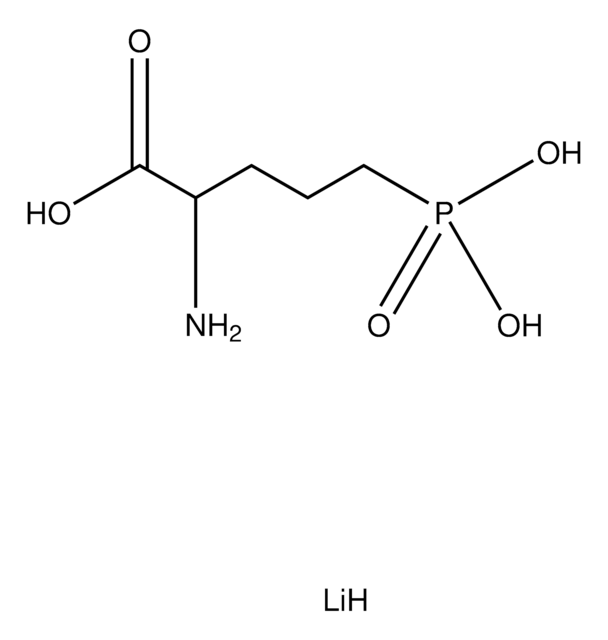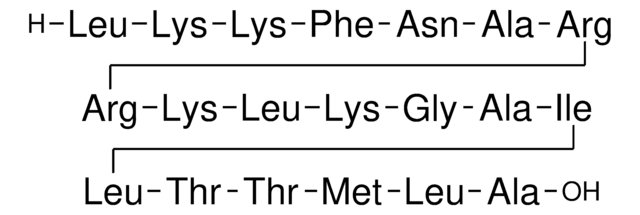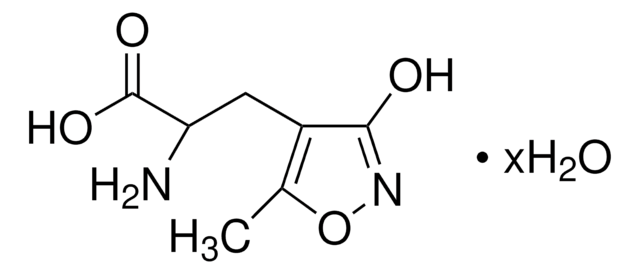C239
CNQX disodium salt hydrate
≥98% (HPLC), solid, AMPA/kainate receptor antagonist.
Synonym(s):
6-Cyano-7-nitroquinoxaline-2,3-dione disodium salt hydrate
About This Item
Recommended Products
product name
CNQX disodium salt hydrate, ≥98% (HPLC), solid
Quality Level
Assay
≥98% (HPLC)
form
solid
storage condition
protect from light
color
orange to red
solubility
H2O: >2 mg/mL (warmed)
SMILES string
O.[Na+].[Na+].[O-]c1nc2cc(C#N)c(cc2nc1[O-])[N+]([O-])=O
InChI
1S/C9H4N4O4.2Na.H2O/c10-3-4-1-5-6(2-7(4)13(16)17)12-9(15)8(14)11-5;;;/h1-2H,(H,11,14)(H,12,15);;;1H2/q;2*+1;/p-2
InChI key
LCDWHGXMFAZHEO-UHFFFAOYSA-L
Gene Information
human ... ADORA1(134) , ADORA2A(135) , ADORA2B(136) , ADORA3(140) , GRIA1(2890) , GRIA2(2891) , GRIA3(2892) , GRIA4(2893)
Application
- as a competitive non-NMDA receptor antagonist and competitive AMPA/kainate receptor antagonist in neuronal cultures(110)
- as a glutamatergic blockers for measuring inhibitory postsynaptic currents in projection neurons(111)
- as a AMPA glutamate receptor antagonist prefrontal cortex neurons(112)
Biochem/physiol Actions
Features and Benefits
Storage Class Code
11 - Combustible Solids
WGK
WGK 3
Flash Point(F)
Not applicable
Flash Point(C)
Not applicable
Personal Protective Equipment
Certificates of Analysis (COA)
Search for Certificates of Analysis (COA) by entering the products Lot/Batch Number. Lot and Batch Numbers can be found on a product’s label following the words ‘Lot’ or ‘Batch’.
Already Own This Product?
Find documentation for the products that you have recently purchased in the Document Library.
Customers Also Viewed
Articles
DISCOVER Bioactive Small Molecules for Neuroscience
DISCOVER Bioactive Small Molecules for Neuroscience
DISCOVER Bioactive Small Molecules for Neuroscience
DISCOVER Bioactive Small Molecules for Neuroscience
Our team of scientists has experience in all areas of research including Life Science, Material Science, Chemical Synthesis, Chromatography, Analytical and many others.
Contact Technical Service















